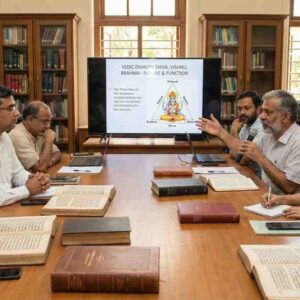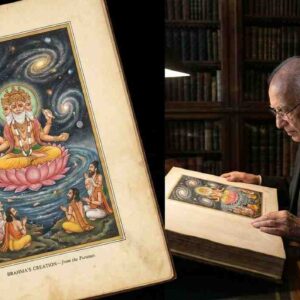Drifting Away or Deepening Doubt: The Subtle Shifts in Indian Spiritual Life
In India, a nation celebrated for its spiritual richness and religious diversity, there is an emerging, yet quiet crisis: a growing detachment from traditional religious beliefs. This phenomenon is not marked by loud renunciations or dramatic abandonments, but rather by subtle shifts in attitudes and practices. As modernity and secular ideas become more prevalent, many Indians are finding themselves questioning the relevance of age-old beliefs in their daily lives.
Exploring the Shifts in Faith
This quiet crisis is characterized by several key developments:
- Generational Changes:Younger generations in India are increasingly exposed to global cultures and philosophies, which often emphasize rationality and scientific understanding over religious or spiritual explanations. This exposure is leading to a more questioning attitude toward traditional beliefs.
- Rise of Spiritual But Not Religious:There is a noticeable trend towards spirituality that eschews the formal trappings of organized religion. More Indians are identifying as spiritual but not religious, seeking personal growth and enlightenment outside the strictures of conventional religious practice.
- Technological Distractions:The digital age has brought with it a myriad of distractions that compete for attention, from social media to endless streaming content, reducing the time and inclination people have to engage with their faith or participate in religious activities.
Causes of the Crisis
Several factors contribute to this quiet crisis of faith:
- Education and Rational Thinking:Higher education levels and greater access to information have encouraged a more critical approach to traditional teachings and myths, leading many to question the inconsistencies or moral implications of ancient texts and practices.
- Economic Priorities:As India continues to develop economically, material aspirations and the demands of modern work life often take precedence over spiritual or religious practices, which are seen as less immediately relevant to success and well-being.
- Cultural Shifts:The global cultural shift towards individualism can be seen in India too, where personal freedom and self-expression are increasingly valued over communal and religious obligations.
The Impact of Losing Touch
The drifting away from traditional beliefs has profound implications:
- Loss of Community:Religion in India has traditionally been a powerful force for community cohesion and support. As individuals drift away from organized religious activities, there is a risk of losing these community networks.
- Moral and Ethical Dilemmas:Religions often provide a framework for morality and ethics. As adherence to these frameworks diminishes, society must find new ways to address moral questions and dilemmas.
- Cultural Identity:Religion is deeply intertwined with India’s cultural identity. A move away from traditional beliefs can lead to a crisis of identity for individuals and communities, questioning what it means to be Indian in the modern world.
Moving Forward: Adapting Faith to Modern Needs
The challenge for India is not necessarily to reverse this trend but to adapt to it by finding ways to make religious and spiritual practices relevant to contemporary life. This might involve:
- Modernizing Religious Education:Teaching religious and spiritual concepts in ways that align with modern values and knowledge, emphasizing the philosophical and ethical aspects rather than the dogmatic.
- Encouraging Personal Spirituality:Supporting people in exploring personal spirituality that aligns with their individual beliefs and lifestyles, possibly through meditation, yoga, and other practices that do not require adherence to a specific religious institution.
- Interfaith Dialogue:Promoting dialogue between various religious and spiritual groups to foster a more inclusive understanding of faith that respects diverse beliefs while finding common ground.
Conclusion
The quiet crisis of faith in India reflects broader global trends of secularization and individualism. While it poses challenges, it also offers an opportunity for a profound reevaluation of what faith and spirituality mean in the modern world. By adapting and evolving, India can find new ways to integrate the spiritual and the secular in ways that enrich its cultural tapestry.













